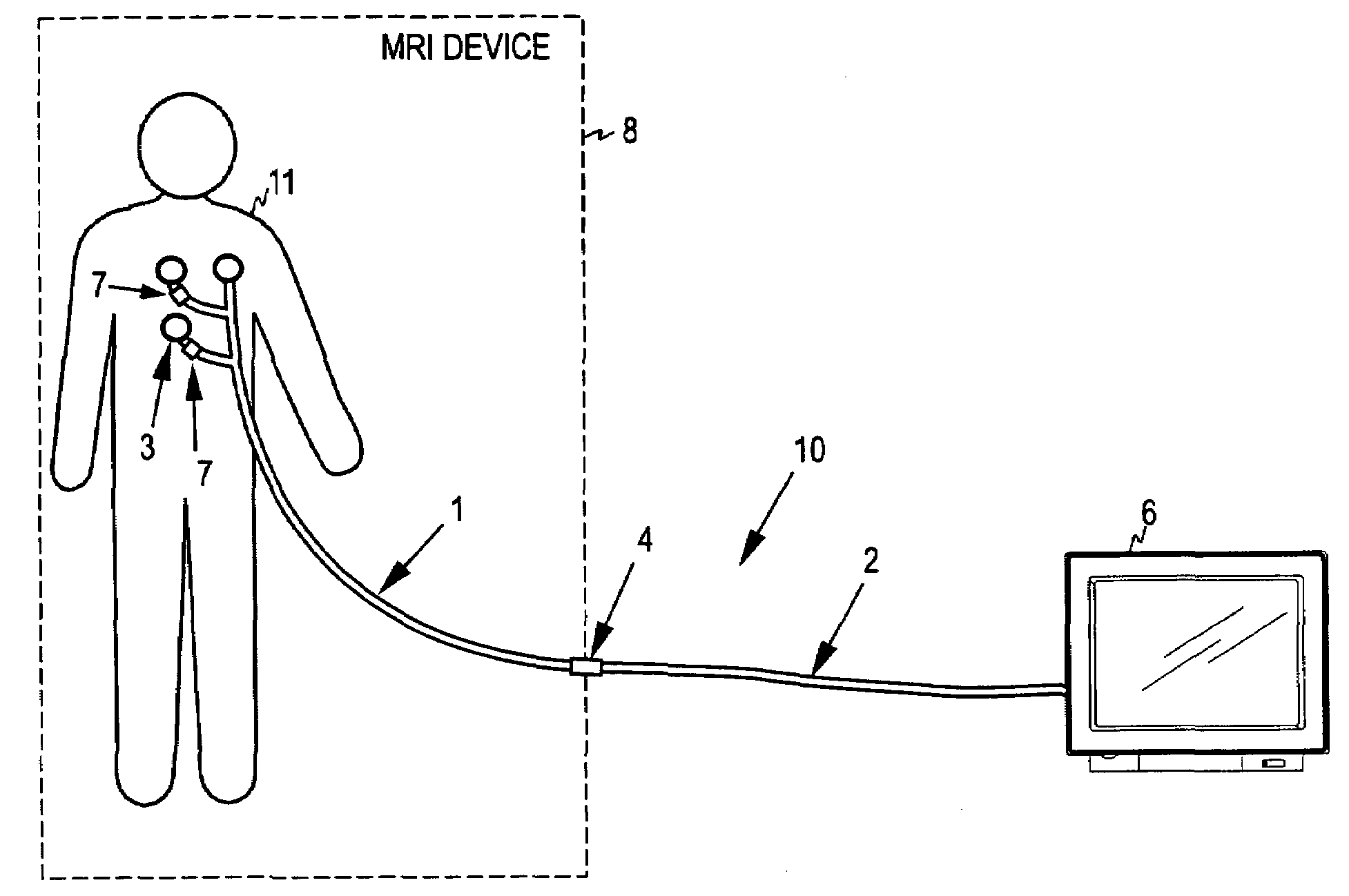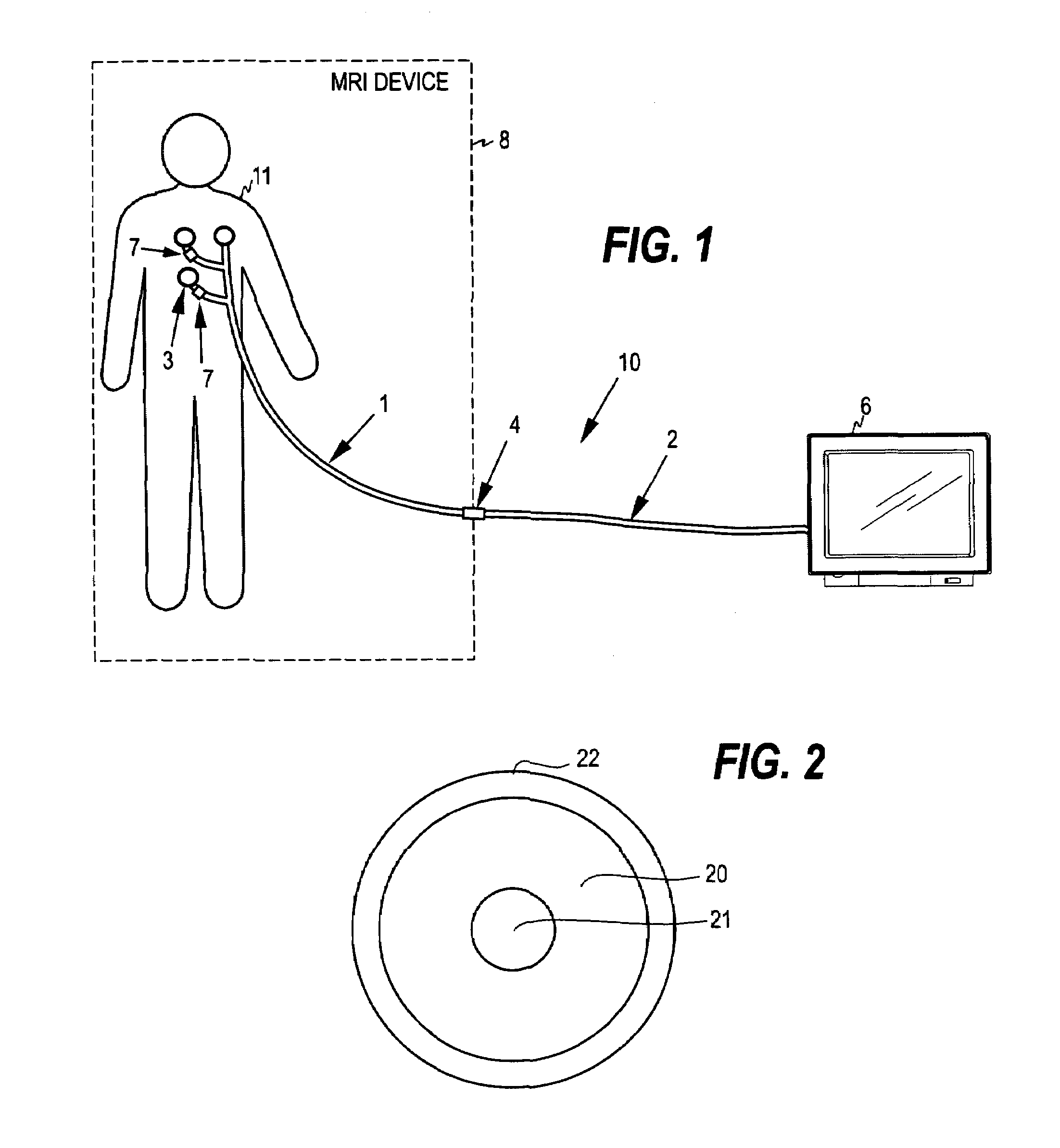Patient cable for medical measurements
a technology for medical measurements and cables, applied in the direction of cable terminations, applications, therapy, etc., can solve the problem of insufficient resistance of the second element for this purpose, and achieve the effect of effectively eliminating the risk of thermal injuries
- Summary
- Abstract
- Description
- Claims
- Application Information
AI Technical Summary
Benefits of technology
Problems solved by technology
Method used
Image
Examples
Embodiment Construction
[0027]FIG. 1 illustrates the basic principle of a patient cable 10 according to the invention. The cable comprises two successive elements: a first cable element 1 that extends from patient 11 towards a monitoring device 6, and a second cable element 2 that connects the first cable element to the monitoring device located further away from the patient lying inside an MRI device 8.
[0028]The first cable element is at its first end connected to electrodes 3 attached on the skin of the patient. The length of the first cable element is dimensioned so that the first cable element forms substantially the part of the whole cable 10 that is inside the MRI device. The first cable element is at its second end connected to the first end of the second cable element 2. The mating connectors of the first and second cable elements are denoted with reference numeral 4. The second end of the second element is connected to the monitoring device that is apart from the MRI device. The said second end ma...
PUM
 Login to View More
Login to View More Abstract
Description
Claims
Application Information
 Login to View More
Login to View More - R&D
- Intellectual Property
- Life Sciences
- Materials
- Tech Scout
- Unparalleled Data Quality
- Higher Quality Content
- 60% Fewer Hallucinations
Browse by: Latest US Patents, China's latest patents, Technical Efficacy Thesaurus, Application Domain, Technology Topic, Popular Technical Reports.
© 2025 PatSnap. All rights reserved.Legal|Privacy policy|Modern Slavery Act Transparency Statement|Sitemap|About US| Contact US: help@patsnap.com


